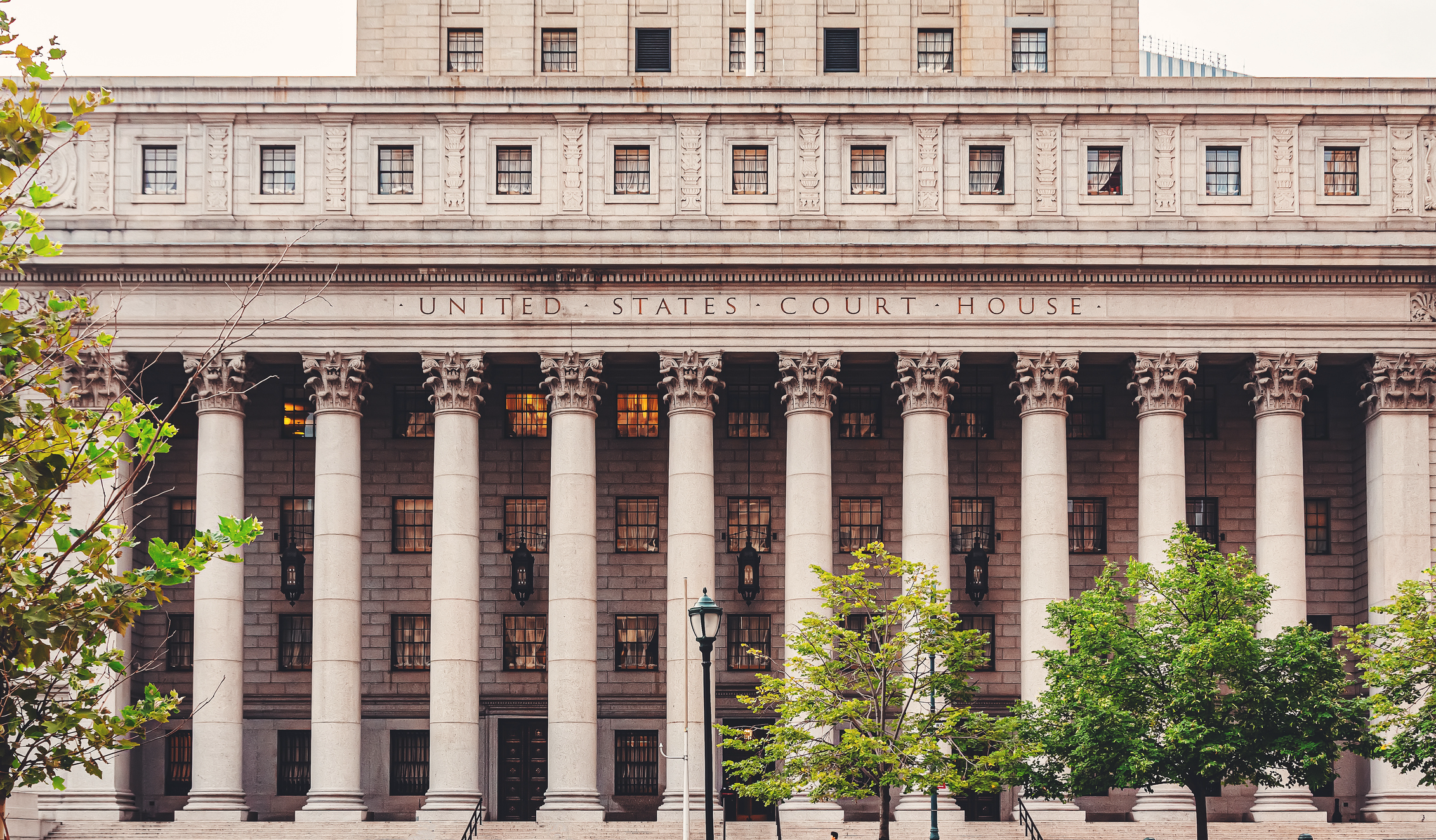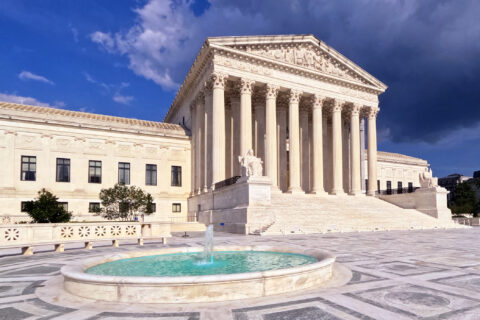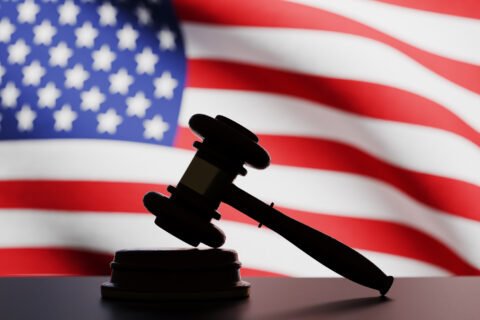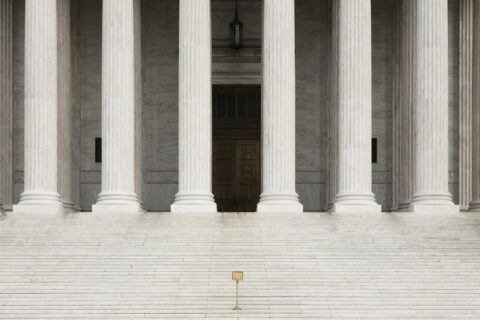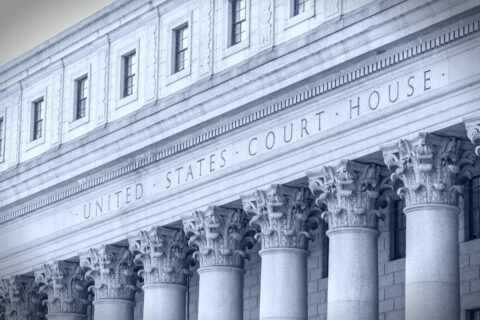The Importance of Legal Advocacy
Recognizing that the federal court system is responsible for much of the law affecting cities and their scope of authority, a key component of the National League of Cities’ advocacy efforts is to support local government interests in cases that could impact municipal organization, operation, powers, duties or financing through amicus briefs. NLC presents or assists in presenting sound and persuasive legal arguments to the courts through appropriate cases on principles and issues important to good municipal government. Through legal advocacy, NLC serves as a more effective and aggressive advocate for legal issues of national importance to local governments.
As state and federal courts across the country become more engaged in cases that affect local government authority, NLC’s Legal Advocacy Program helps ensure cities have a strong and united voice in the courtroom. Cities should consider the program an additional member benefit that increases the value of their return on investment in the organization.

Supporting Local Governments Through the Courts
NLC works with two distinctive bodies to support our federal legal advocacy efforts. Learn more about the NLC Legal Advisory Committee and the Local Government Legal Center below!
NLC Legal Advisory Committee
The Legal Advisory Committee is a standing advisory body that, with the assistance of NLC legal advocacy staff, has responsibility for surveying pending legal matters, evaluating requests for assistance, and making recommendations to the NLC Executive Director about cases that NLC should initiate or seek to participate in by filing an action, intervening as a party, filing or signing onto an amicus brief, providing financial support, or otherwise as appropriate. All members of the Legal Advisory Committee are practicing attorneys.

Local Government Legal Center
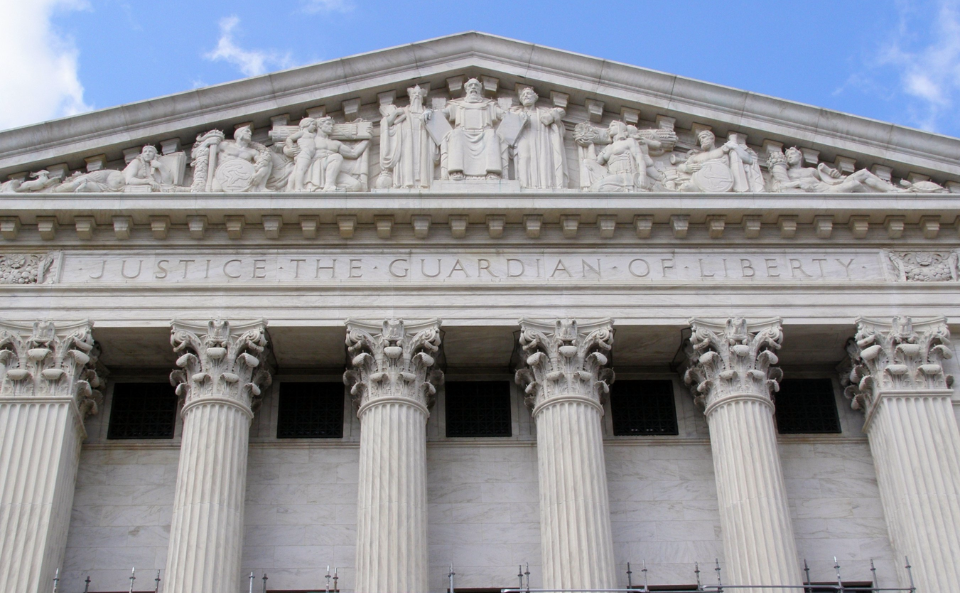
NLC is a founding member of the Local Government Legal Center (LGLC), which provides a strong and unified local government voice before the U.S. Supreme Court and lower federal courts in cases that are of consequence to municipal operations. The LGLC also serves as a resource for local governments, providing education regarding the Supreme Court and its impact on municipal operations.
For smaller communities like mine, having a strong federal voice in the courts is invaluable towards ensuring that the principles and issues of municipal government are protected. As a local elected official and attorney, I know that local issues can often be complex and hard for those outside of municipal government to understand. Providing sound, persuasive legal arguments to the courts that explain the court’s impact on local government operations is an essential part of NLC’s member value.

As a local elected official and attorney, I am deeply aware of the increasing number of court cases that threaten the ability of local governments operations. From public safety to environmental issues, ensuring that cities, towns and villages of all sizes can set and regulate local programs, policies and procedures is essential to good government. Having a strong voice representing our interests in the courts is essential to providing the best services for our residents.

Frequently Asked Questions

NLC closely tracks cases that are in the federal court system and are regularly advised on cases before the Supreme Court through the Local Government Legal Center. NLC has also occasionally been involved in state court system cases if the legal issue is pertinent to local government interests and concerns our members in that jurisdiction.

There are many areas of Constitutional law that touch and impact local government interests. NLC works with the Local Government Legal Center to identify cases that have great impact on local government operations or that would threaten local governments’ ability to govern, such as through cases that could subject them to greater liability. NLC considers joining amicus briefs on individual cases based on the legal issue up for determination by the courts and less on the case specific facts, that may involve direct city activity or actors. On policy-specific matters, NLC references the National Municipal Policy as the guiding document for the priorities and positions of local governments
First Amendment/Free Speech
The First Amendment protects the rights of all people in the United States with freedom of speech. Speech includes “expressive conduct” such as distributing literature or protesting. Local governments cannot limit speech if it is protected by the Constitution. However, local governments in some circumstances can regulate the time, place, and manner of speech. When and how a city can regulate speech often comes before the courts as cities, towns and villages implement rules and regulations for the health and safety of their communities. For example, cases involving sign regulations or panhandling ordinances involve the regulation of speech. First Amendment cases also come before the courts on issues pertaining to public safety. These types of cases include issues involving protests and allegations of retaliatory arrests.
Due Process
Due process clauses appear in both the Fifth and Fourteenth Amendments. These clauses work to ensure that no individual is deprived of “life, liberty, or property” without due process. Examples of where due process applies to issues of local government include planning/zoning, asset forfeiture, and housing evictions.
Tenth Amendment/Federalism or Preemption
The Tenth Amendment provides that “[t]he powers not delegated to the United States by the Constitution, nor prohibited by it to the States, are reserved to the States respectively, or to the people.” The Tenth Amendment establishes the fundamental principle of local control against federal preemption – that the government closest to the people is best suited to addressing local issues. Cases that come before the courts that preempt local control or threaten to take away local control are of critical importance to local governments.
Land Use/Zoning/Property Law
Local governments regularly engage in the process of zoning – providing for the allowable land uses within the municipality and issuing permits for the construction of buildings and structures. Zoning is a quintessential local government issue and cases that threaten local control over land use and zoning, as well as fees associated with development, have an impact on local land use regulation.
Taking Clause/Eminent Domain
The Takings Clause of the Fifth Amendment provides that private property must not be taken for public use without just compensation. A taking may occur when a government regulation restricts the use of land, even if the government does not invade or occupy the land. These cases often involve local land regulations.
Second Amendment (firearms)
The Second Amendment protects the right to keep and bear arms. The courts have ruled that the Second Amendment is an individual right and local governments are limited from infringing upon it. Cases where local governments have sought to regulate local firearm laws within their jurisdiction have come before the courts.
Commerce Clause
The Commerce Clause most often impacts local governments via the “dormant commerce clause”, which can bar state and local actions that discriminate against or have dramatic economic effects on out of state commerce. Cases involving the dormant commerce clause directly implicate federalism as they involve allegations that a local regulation should be barred due to the federal government’s supremacy over interstate commerce. These cases can arise in the context of local taxes, bans on puppy mills, or even zoning regulations related to the storage of crude oil within the city.
Employment Law
In addition to providing programs and services to residents, cities, towns and villages are also all employers. As such, cases that come before the courts that impact the ability of local governments to address employment regulations and human resources needs are of significant importance. These cases can potentially result in expanded liability for local governments as employers.
Elections/Voting
Local governments play a role in election administration and have a vested interest in upholding equitable voting rights and equitable access in local election administration.
Section 1983
Under 42 U.S.C. Section 1983, local governments may be liable for violations of federal statutory or constitutional law. These cases often arise in the context of law enforcement but may be brought in other contexts as well where an individual can prove that a local government employee, acting under the color of state law, deprived them of their rights under the Constitution. Local governments themselves can be liable for policies that violate an individual’s rights or patterns and practices that do so. Cases involving Section 1983 can be very expensive for local governments and they also carry with them the ability to recover attorney’s fees against the local government which are also expensive. In some cases, a defendant may be entitled to qualified immunity if they have not violated clearly established constitutional rights. This is an affirmative defense to liability under Section 1983 and helps limit some of the liability for local governments under the statute.
To stay up to date with NLC’s legal advocacy efforts, sign up for the Federal Advocacy newsletter here. If you would like to learn more about the structure of the Legal Advisory Committee or to raise a case for awareness to NLC legal advocacy staff, please complete this form.
Legal Advocacy Form

NLC works in collaboration with the Local Government Legal Center to provide both pre-term and post-term Supreme Court webinars. Recordings of past webinars are available to members on our website and invitations to future webinars will be sent via email communication. You can sign up to receive these communications here. Regular blog posts summarizing cases and their impact on local government can also be found on CitiesSpeak. NLC also regularly engages our Board of Directors and the State Municipal Leagues with updates on our legal advocacy efforts.
